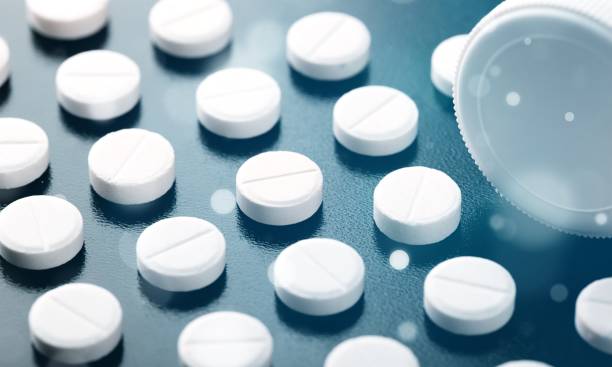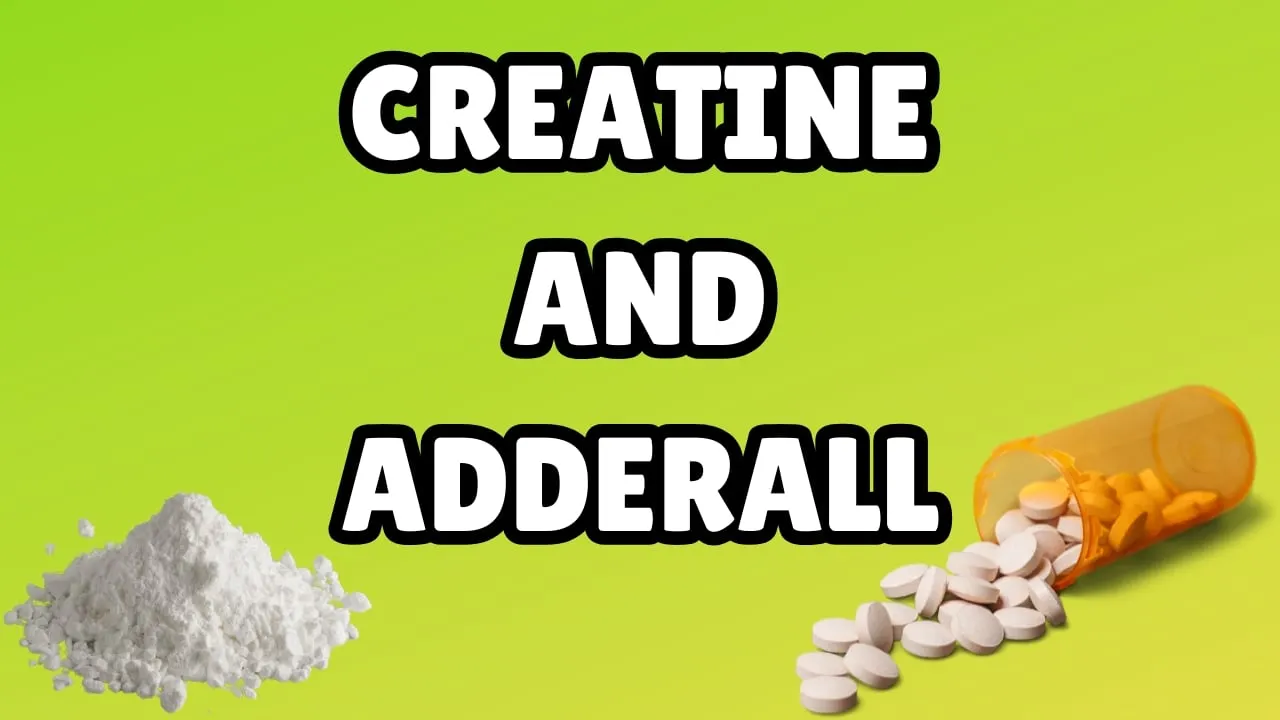Creatine and Adderall: Understanding Their Effects on ADHD Treatment
Creatine and Adderall: Exploring Interactions, Benefits, and Risks
Creatine and Adderall are two substances with distinct purposes: creatine is a popular supplement for improving physical and cognitive performance, while Adderall is a prescription medication used to treat ADHD.
This article explores their potential interactions, benefits, and risks.
By reading, you'll gain clarity on whether combining these substances is safe and beneficial, especially for individuals with ADHD.

Outline:
- What Is Creatine?
- What Is Adderall?
- How Does Adderall Work?
- The Science Behind Creatine
- Creatine for ADHD: Does It Help?
- Combining Creatine and Adderall: Is It Safe?
- Interactions Between Adderall and Creatine
- Potential Benefits of Creatine for ADHD Symptoms
- Risks of Combining Adderall and Creatine
- Consulting a Healthcare Provider Before Combining Creatine and Adderall
1. What Is Creatine?
Creatine is a naturally occurring compound found in muscle cells. It plays a key role in energy production, particularly during high-intensity activities. Creatine supplementation is widely used to improve strength, muscle mass, and exercise performance.
Research suggests that creatine may also have neuroprotective effects, supporting brain health and cognitive performance.
2. What Is Adderall?
Adderall is a prescription medication commonly used for ADHD treatment. It combines two stimulants: dextroamphetamine and amphetamine.
Adderall works by increasing dopamine and norepinephrine levels in the brain, helping improve focus, attention, and impulse control in individuals with ADHD.

3. How Does Adderall Work?
Adderall is classified as a stimulant. By increasing neurotransmitter activity, it enhances brain functions linked to attention and decision-making.
For people with ADHD, Adderall can reduce symptoms such as inattention and hyperactivity, making it easier to manage daily tasks and responsibilities.
4. The Science Behind Creatine
Creatine supplementation could positively affect physical and mental performance.
Studies have suggested that creatine monohydrate supplementation improves brain function by bolstering brain creatine levels.
This process supports energy production in neurons, which can enhance cognitive performance and neuroprotective effects.

5. Creatine for ADHD: Does It Help?
Creatine may help manage ADHD symptoms due to its potential cognitive benefits.
Some research suggests that creatine supplementation could improve brain energy metabolism, which might benefit individuals with ADHD.
However, more research is needed to confirm these effects and determine whether creatine is safe and effective for ADHD management.
For more details, read about creatine and ADHD.
6. Combining Creatine and Adderall: Is It Safe?
Combining creatine with Adderall has not been extensively studied, so its safety is not fully established.
While creatine is generally safe, Adderall is a controlled substance with specific side effects.
Individuals diagnosed with ADHD should consult with a healthcare provider before combining these substances.
7. Interactions Between Adderall and Creatine
The interaction between creatine and Adderall is not well-documented. Some studies propose that Adderall may reduce creatine levels in the body, which could impact its effectiveness.
Additionally, combining Adderall and creatine may enhance the stimulant effects of Adderall, potentially leading to adverse effects like increased heart rate or anxiety.
Learn about potential side effects of creatine.

8. Potential Benefits of Creatine for ADHD Symptoms
Creatine supplementation could provide neuroprotective effects and support brain energy metabolism, which may help individuals with ADHD.
Research suggests that creatine supplementation could positively affect attention and cognitive function.
While creatine’s effects are promising, healthcare providers recommend weighing the potential benefits against the risks before combining it with medications like Adderall.
9. Risks of Combining Adderall and Creatine
Combining Adderall and creatine could increase the risk of adverse effects.
For instance, the stimulant effects of Adderall may interact with creatine supplementation, leading to dehydration, elevated heart rate, or heightened anxiety.
Additionally, individuals taking Adderall should monitor their creatine levels and consult a healthcare provider to avoid potential adverse effects. Find out more about hydration and creatine use.

10. Consulting a Healthcare Provider Before Combining Creatine and Adderall
Before starting creatine supplementation or combining it with Adderall, it is essential to consult with a healthcare professional.
They can provide personalized advice on the safety of combining creatine and ADHD medications based on your specific health needs.
This ensures you avoid potential risks and maximize the benefits of both substances.
For insights, check out how to choose the right type of creatine.
FAQs
Can I take creatine with Adderall?
Taking creatine with Adderall has not been extensively studied, but combining the two substances may have effects on the body.
Some propose that creatine supplementation could benefit brain performance, but Adderall may affect creatine levels in the blood.
Always consult a healthcare provider before combining these.
Do Adderall and creatine interact?
While there is limited research, some studies suggest Adderall could reduce creatine levels in the body. This interaction might affect the effectiveness of creatine supplementation.
Combining these substances could also enhance stimulant effects, potentially leading to common side effects like dehydration or anxiety.
What is the science behind creatine and ADHD?
The science behind creatine suggests it can improve brain energy metabolism by bolstering brain creatine levels.
Creatine has been shown to provide neuroprotective effects, which might be beneficial for managing symptoms of ADHD, including attention deficits.
Is using creatine for ADHD safe?
Although creatine is generally safe for most people, its use for ADHD has not been widely researched.
Supplements like creatine may offer potential benefits for ADHD patients by improving brain performance, but more studies are needed to confirm its safety and efficacy.
Consulting a healthcare provider is essential.
What are the effects of combining creatine and Adderall?
The effects of combining creatine and Adderall can vary. Adderall’s stimulant effects may interact with creatine, potentially increasing the risk of side effects such as elevated heart rate, dehydration, or heightened anxiety.
Monitoring hydration and creatine levels is crucial when combining these substances.
Key Takeaways:
- Creatine is a naturally occurring compound that improves energy production and cognitive performance.
- Adderall is a prescription stimulant used for ADHD treatment.
- Combining creatine and Adderall may enhance stimulant effects, posing potential risks.
- Research suggests that creatine supplementation could positively affect brain function, potentially benefiting individuals with ADHD.
- Consult with a healthcare provider before combining creatine with Adderall to weigh potential benefits against risks.
By understanding the potential interactions between creatine and Adderall, individuals can make informed decisions about their use while prioritizing safety and effectiveness.

References
Does brain creatine content rely on exogenous creatine in healthy youth? A proof-of-principle study
Rae, Caroline, et al. “Does Brain Creatine Content Rely on Exogenous Creatine in Healthy Youth? A Proof-of-Principle Study.” PubMed, 2017, https://pubmed.ncbi.nlm.nih.gov/28079396/.
Oral creatine monohydrate supplementation improves brain performance: a double-blind, placebo-controlled, cross-over trial
McMorris, T., et al. “Oral Creatine Monohydrate Supplementation Improves Brain Performance: A Double-Blind, Placebo-Controlled, Cross-Over Trial.” PubMed, 2003, https://pubmed.ncbi.nlm.nih.gov/14561278/.
Cognitive effects of creatine ethyl ester supplementation
Rae, Caroline, et al. “Cognitive Effects of Creatine Ethyl Ester Supplementation.” PubMed, 2009, https://pubmed.ncbi.nlm.nih.gov/19773644/.
A review of creatine supplementation in age-related diseases: more than a supplement for athletes
Bender, Andrea, et al. “A Review of Creatine Supplementation in Age-Related Diseases: More Than a Supplement for Athletes.” PubMed Central, 2014, https://www.ncbi.nlm.nih.gov/pmc/articles/PMC4304302/#:~:text=New%20studies%20indicate%20that%20creatine,%2C%20Alzheimer%27s%20disease%2C%20and%20stroke.
Drug Interactions between Adderall and creatine
“Drug Interactions between Adderall and Creatine.” Drugs.com, 2020, https://www.drugs.com/drug-interactions/adderall-with-creatine-190-1645-2550-0.html#:~:text=No%20interactions%20were%20found%20between%20Adderall%20and%20creatine.
For More Training Advice + Diet and Lifestyle visit us Combat Creatine
PS: Make sure you check out the rest of our Training Guides:
Creatine
- Creatine Supplements Ultimate Guide
- Creatine Monohydrate Gummies
- Creatine Powder Vs. Pills
- Creatine HCL vs Monohydrate
- How Does Creatine Work
- Does Creatine Make You Poop?
- Does Creatine Break a Fast
- A Guide to Supplement Forms
- Creatine Supplementation Side Effects
- Creatine Myths
- Creatine Pros & Cons
- Creatine Monohydrate Powder
- Creatine Recovery
- Creatine Loading Phase
- Women Should Take Creatine
- Creatine Kinase
- Best Creatine Monohydrate Gummies Review: Top 10 Best Creatine Gummies













